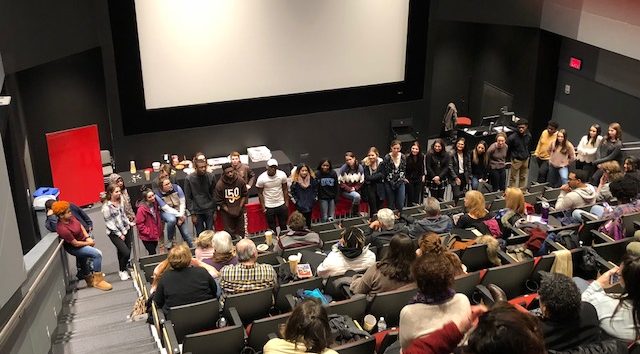I felt inspired, confident and validated in my pursuit of the Doc minor after reading Kirsten Johnson’s statement. She spoke boldly about the qualities of her work, bringing attention to the nuances of documentary I never would have considered this early on, but of which now seem so imperative to know sooner rather than later. I noticed there was a sense of power as a cameraperson that seemed to underpin most words she chose.
I have never been one who favors power in a sense that I need to feel ‘in charge’ and make demands of others in any career path. However, Kirsten shed new light on the necessity of having to confront tough decisions.
Having no control would result in a counterproductive workflow. However, here I think she is alluding to a deeper, more raw and organic principle of power when it comes to her work. Her hints to power in this reading are not so much an exertion of control of every circumstance. I understand this sense of power instead as acting like an organ, a brain, or perhaps more clearly, the innate brain ‘power’ of a documentary, what dictates the film.
She offers instances where action is necessary for the documentary to live beyond the moment of filming when she says, “I can and will leave a place I film (a war, a refugee camp, etc.) when the people I film cannot”. The brain of the operation tells her it’s time to leave. She also says, “I alter the balance of power by my presence and act on behalf of one side or another in a conflict”. Being the person with the camera gives her a presence different from how she is without it, the brain telling her what to concentrate on. She writes, “My work can change the way my subject is perceived…” It holds the power to alter other brains’ perceptions, to make change happen in others. “I fail to see or follow stories the director I work for hopes I will follow”, the brain wants what it wants. “I get to share profound intimacy with the people I film”, a vulnerable moment the brain yearns for, “…pursue remarkable stories…”, allow the brain to wander and wonder, “…be at the center of events as they unfold…”, the brain is always hungry for more. Yet, the brain is also required to make technical choices, “how to frame, find focus, choose the direction to follow”.
I suppose this was all so striking to me because it reaffirmed my suspicion about filmmaking being a career in which the learning is endless and the rewards are all the more fruitful because the road to finality is arduous, and creative when the dedication is so wholehearted.
